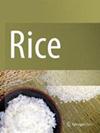How Can Machine Learning Models Be Used for Subjective Assessment of Safety and Comfort: Application on Free Lane Change Maneuver
IF 4.8
1区 农林科学
Q1 AGRONOMY
引用次数: 0
Abstract
Subjective evaluation plays a key role in autonomous driving feature validation for safety, comfort, and driving quality. As for being objective, it is also important to evaluate the autonomous features with key performance indicators (KPI) depending on physical parameters before stepping into the delivery phase. To provide better driving experience for autonomous features, calibration parameters need to be tuned carefully while considering safety and comfort. Calibration parameters can be evaluated in terms of safe, unsafe, comfortable, or uncomfortable states through questions that allow the evaluation of the passenger’s feelings during real-world testing which includes predefined scenarios and environments. In this paper, we proposed a method that performs the rating of the free lane change maneuver in terms of safety and comfort by employing the machine learning algorithms to model the passenger feedback according to the questionnaire for the subjective evaluation of the test maneuver execution. After trying several machine and deep learning regression techniques, we have shown that Extreme Gradient Boosting (XGB) regressor can be used to model drive feeling accurately for validation and calibration purposes. The constituted evaluation model can be utilized to improve quality of the autonomous driving, optimize calibration parameters and achieve user acceptance.机器学习模型如何用于安全性和舒适性的主观评估:在自由变道机动中的应用
主观评价在自动驾驶的安全性、舒适性和驾驶质量等方面发挥着关键作用。至于客观,在进入交付阶段之前,根据物理参数使用关键绩效指标(KPI)评估自主特性也很重要。为了给自动驾驶功能提供更好的驾驶体验,需要在考虑安全性和舒适性的同时,仔细调整校准参数。校准参数可以根据安全、不安全、舒适或不舒服的状态进行评估,通过问题来评估乘客在现实世界测试中的感受,包括预定义的场景和环境。本文提出了一种对自由变道机动进行安全性和舒适性评分的方法,该方法采用机器学习算法根据问卷对乘客反馈进行建模,对测试机动执行情况进行主观评价。在尝试了几种机器和深度学习回归技术之后,我们已经证明,极端梯度增强(XGB)回归量可以用于准确地建模驱动感觉,以进行验证和校准。所构建的评价模型可用于提高自动驾驶质量,优化标定参数,实现用户接受。
本文章由计算机程序翻译,如有差异,请以英文原文为准。
求助全文
约1分钟内获得全文
求助全文
来源期刊

Rice
AGRONOMY-
CiteScore
10.10
自引率
3.60%
发文量
60
审稿时长
>12 weeks
期刊介绍:
Rice aims to fill a glaring void in basic and applied plant science journal publishing. This journal is the world''s only high-quality serial publication for reporting current advances in rice genetics, structural and functional genomics, comparative genomics, molecular biology and physiology, molecular breeding and comparative biology. Rice welcomes review articles and original papers in all of the aforementioned areas and serves as the primary source of newly published information for researchers and students in rice and related research.
 求助内容:
求助内容: 应助结果提醒方式:
应助结果提醒方式:


